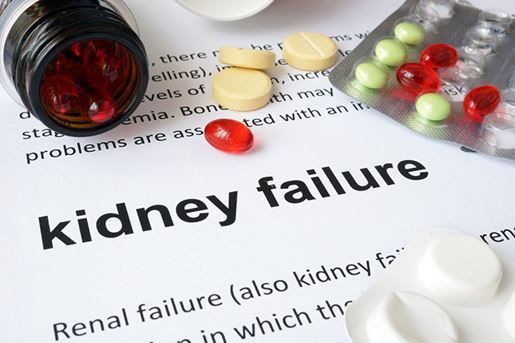Cardiorenal Protection With the Newer Antidiabetic Agents in Patients With Diabetes and Chronic Kidney Disease
Published: September 28, 2020

- This Scientific Statement summarizes current research and literature on the cardiorenal protective effects of sodium glucose co-transporter 2 inhibitors (SGLT2i) and glucagon like peptide-1 receptor agonists (GLP-1 RA) in patients with chronic kidney disease (CKD) and type 2 diabetes mellitus (T2D).
- CKD in patients with T2D represents a major public health problem and accounts for a majority of patients with end stage kidney disease (ESKD) in the U.S. and worldwide.
- This statement suggests a collaborative cardio-renal-metabolic care model between cardiologists, nephrologists, endocrinologists, and internists to facilitate prompt, appropriate integration of these therapeutic classes in the management of patients with T2D and CKD.
Supporting Materials
- Commentary: Commentary on Cardiorenal Protection With the Newer Antidiabetic Agents in Patients With Diabetes and Chronic Kidney Disease by Margaret K. Yu, MD, MS (1) and Glenn M. Chertow, MD, MPH (1, 2)
- Top Things to Know: Cardiorenal Protection With the Newer Antidiabetic Agents in Patients With Diabetes and Chronic Kidney Disease
- Given the rapid evolution of data in the cardiorenal-metabolic space, a brief update is also provided highlighting the major new trials in this topic that reported data after the timeline of this scientific statement ( March 31, 2020). See Attached Slides (PDF)
- News Release: Newer Type 2 diabetes medications have heart and kidney disease benefits, too
Recommended Reading
- 2017 Focused Update of the 2013 Guideline for the Management of Heart Failure
- 2016 Focused Update on New Pharmacological Therapy for Heart Failure: An Update of the 2013 Guideline for the Management of Heart Failure
- 2013 Guideline for the Management of Heart Failure
- Contributory Risk and Management of Comorbidities of Hypertension, Obesity, Diabetes Mellitus, Hyperlipidemia, and Metabolic Syndrome in Chronic Heart Failure
- Update on Prevention of Cardiovascular Disease in Adults with Type 2 Diabetes Mellitus in Light of Recent Evidence